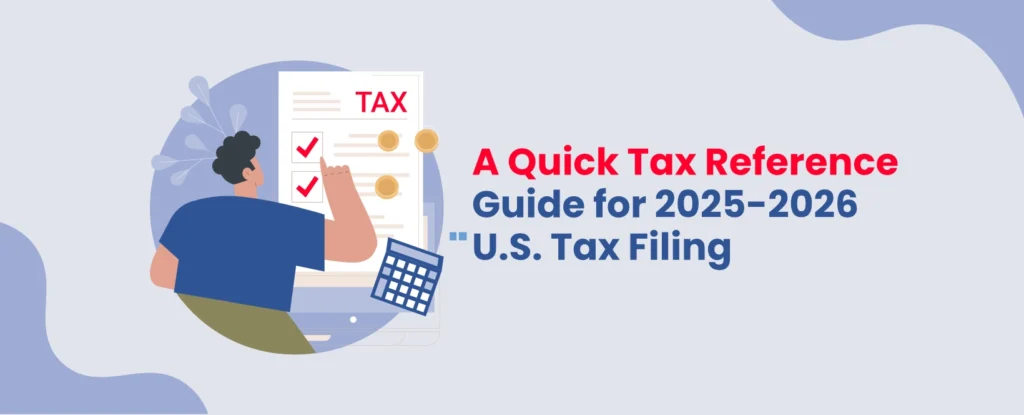Taxes can be confusing, but knowing them is essential for managing your finances effectively and staying compliant with government regulations. In this article, we explore the two most common tax categories so that you can understand your taxes better.
Two of the most common types of taxes that individuals and businesses encounter are payroll taxes and income taxes. Although both are essential to government funding, they serve different purposes and have unique implications for individuals and businesses alike. Let’s break down the key differences between payroll and income taxes, understand how they impact your financial situation, and gain insights into why efficient tax planning and preparation is so important.
What is Income Tax?
Income tax is the total tax you owe to the government and is calculated on your income. It is assessed at the federal, state, and local levels. Income tax is typically levied on various forms of income, including wages, salaries, bonuses, dividends, interest, and other earnings. The amount of income tax you owe depends on your taxable income, which is your gross income minus any tax deductions, exemptions, or tax credits that you are eligible to claim.
Income tax rates can vary significantly depending on your income level and the tax bracket you fall into. The federal government uses a progressive tax system in the United States, meaning that higher income levels are taxed at higher rates. On the other hand, state and local income taxes can either be progressive or flat, where everyone pays the same rate regardless of income.
As of 2023, only 9 US states do not impose any state-level income tax. These are Alaska, Florida, Nevada, South Dakota, Texas, Tennessee, Washington, Wyoming, and New Hampshire (excluding dividends and interest).
Also, as an employer, you are required to withhold a portion of your employee’s wages as income tax and pay it to the tax authorities. However, individuals are still responsible for filing their income tax returns and paying any additional taxes owed or receiving a refund if they have overpaid.
What is a Payroll Tax?
Payroll taxes are taxes that employers are required to withhold from employees’ wages and pay on their behalf to the government. These taxes are used to fund social insurance programs, including Social Security and Medicare in the United States. Additionally, employers pay taxes such as FUTA (Federal Unemployment Tax Act) without any employee contribution.
Below are some key components of payroll tax:
Social Security Taxes: Whether you are an individual or a business, you must pay a certain percentage of the wages as social security tax. This tax is part of the Federal Insurance Contributions Act (FICA). In 2024, both employers and employees will each contribute 6.2% of taxable wages toward Social Security, up to a limit of $168,600, compared to $160,200 in 2023, totaling 12.4% of the total taxable wages. The wage base limit may be adjusted annually by the government.
Medicare Taxes: Medicare taxes fund the Medicare program, which provides health insurance for individuals aged 65 and older and younger people with disabilities. Each employee and employer must pay 1.45% of total taxable wages, with no wage limit. An additional 0.9% Medicare tax applies to high-income earners.
For further details on the Medicare taxes, visit https://www.irs.gov/taxtopics/tc751
Federal Unemployment Tax Act (FUTA): Employers pay this tax to provide unemployment compensation to workers who have lost their jobs. The FUTA tax is paid solely by the employer and is not deducted from an employee’s wages. The federal rate is currently at 6% on the first $7,000 paid to the employee. Employers can receive a credit of up to 5.4% if they pay state unemployment taxes, reducing the effective FUTA rate to 0.6%.
State Unemployment Taxes (SUTA): Similar to FUTA, state unemployment taxes are paid by solely by employers to fund state unemployment benefits. Each state sets its own tax rates and wage base limits.
Additional Withholdings: In some cases, there may be other payroll taxes or withholdings, such as those for state disability insurance or local taxes. However, they depend on the location and specific requirements.
Payroll taxes are mandatory taxes that play a crucial role in funding social safety nets. Employers are responsible for calculating, withholding, and remitting these taxes to the government, and failure to do so can result in tax penalties and interest charges. Understanding payroll taxes is essential for both employers and employees to ensure compliance and proper financial planning.
Income Tax vs Payroll Tax: The Key Difference
The table summarizes the key differences between these two tax categories:
| Components | Payroll tax | Income tax |
| Purpose of the Tax | Primarily used to fund social insurance programs like Social Security and Medicare. | Used to fund a wide range of government services, including national defense, infrastructure, and public education. |
| Who pays the tax? | Shared between employers and employees. The employer withholds the employee’s share from their paycheck and matches it with an equal contribution. | Paid entirely by the individual or business. Employers may withhold estimated income taxes from employee paychecks, but the final responsibility for payment lies with the taxpayer. |
| On what is it calculated? | On employee wages and salary | On all income types including income from business and other sources |
| Tax Caps and Exemptions | Only the first $168,600 of income is subject to Social Security tax (as of 2024). Medicare taxes apply to all wages with no limit on wages. | No cap on taxable income. All earned and unearned income is subject to taxation. |
Why Understanding the Difference Matters?
Payroll taxes and income taxes are both integral to the functioning of government programs and services, but they serve different purposes and affect taxpayers in distinct ways. By understanding the key differences between these two types of taxes, individuals and businesses can better manage their financial obligations and take advantage of any available tax benefits.
For employees, knowing payroll taxes is important as it affects the take-home pay and can help in retirement planning and other long-term financial decisions. For employers, understanding these taxes is essential for accurate payroll processing and compliance with tax regulations.
Businesses also need to consider both types of taxes as they impact labor costs and overall profitability. Misunderstanding these taxes can lead to compliance issues, penalties, and missed opportunities for tax savings too.
So, whether you’re an employee trying to understand your paycheck deductions or a business owner dealing with the complexities of payroll processing, having a clear grasp of payroll and income taxes is essential for informed decision-making.If you need more help on your payroll or your income tax, reach out to us. Our Outsourced Payroll Processing Services as well as Tax Planning and Return Preparation Services are available across US, UK and Canada to help small businesses and individuals manage their financial obligations with complete confidence. Schedule a free consultation with our certified taxation experts today and stay sorted and prepared for the upcoming tax season!


